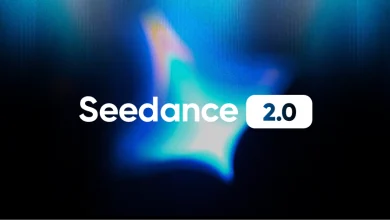
You’ve worked hard on your paper or assignment. You want your ideas to shine and don’t want to be flagged by reviewers or tools. That’s where an AI detector for academics comes in. It helps catch AI-generated writing and protects your trust and honesty. In this article, we’ll discuss how it works, its limits, and how you and your school can use it wisely.
Defining Intellectual Integrity
Do you know what honesty means? Crediting others, respecting ideas, and sticking to your voice. When you honour that, you’re protecting your integrity. A great AI detector for academics helps you keep that honesty in check. It’s like a friend pointing out if something doesn’t feel like your work.
How AI Detectors Work
An AI detector for academics works like a spell-checker, but instead of looking for spelling mistakes, it looks for signs that something was written by a machine. It checks if the writing sounds too smooth or uses patterns and words that people don’t usually use.
If the tool thinks the writing might be from AI, it gives a warning or score. Some detectors display a percentage to indicate how much of the text may have been created by AI.
By using these tools like Proofademic, you can identify AI material and make any corrections before submitting your work. They are particularly useful if you want to ensure that your finished product still sounds like you after using AI assistance. Using these detectors is a sensible strategy to remain fresh and honest as AI writing becomes increasingly prevalent.
Why Academia Needs AI Detection
Let’s face it—AI tools are everywhere now. Students and researchers might even use them without meaning to. Schools need a tool to keep things fair., and an AI detector for academics makes that possible. It supports honest work and helps prevent shortcuts that may affect learning.
Limitations of Current Tools
AI detectors for academics are improving all the time and can be very helpful. Sometimes, they might flag well-written human text as AI or miss some clever AI-generated sections. These resources are helpful, but they are more effective when used in conjunction with your own honest and transparent writing. The most crucial aspect of your job is still maintaining your voice and communicating your thoughts.
Ethical Use of AI Detectors
Using the AI detector for academics shouldn’t feel like a trap. You should know when it’s used and why. The goal should be learning—not just punishment. If your school uses it, make sure it’s fair and transparent.
Real‑World Academic Cases
Sometimes, students may get flagged unfairly by an AI detector for academics. Their writing may be vivid and personal, yet the tool still labels it as AI-generated. This has led to important discussions about how to use these detectors fairly. Many institutions are still learning the best ways to apply AI detection without harming genuine work.
Future of AI Detection in Academia
Looking ahead, any AI detector for academics will become smarter and friendlier. Maybe it’ll suggest rewrites or integrate right into your word processor. You’ll still write your ideas with your own voice, making integrity easy and natural.
Final Words
Using an AI detector for academics doesn’t mean the writing is bad—it shows a commitment to honesty. Maintaining natural writing helps, such as using contractions and varying sentence lengths. Adding personal touches or conversational phrases makes the text sound genuine. This is how integrity and authenticity come through every time.





